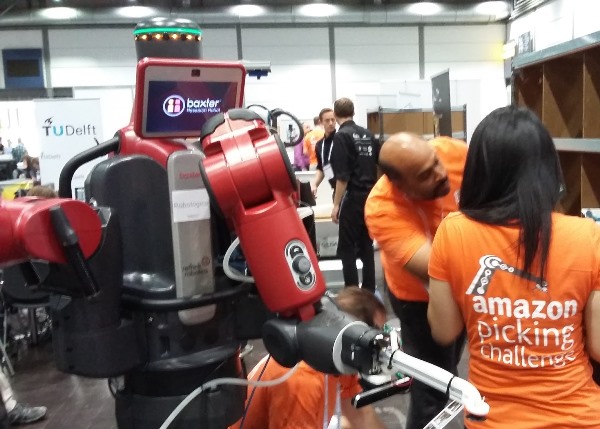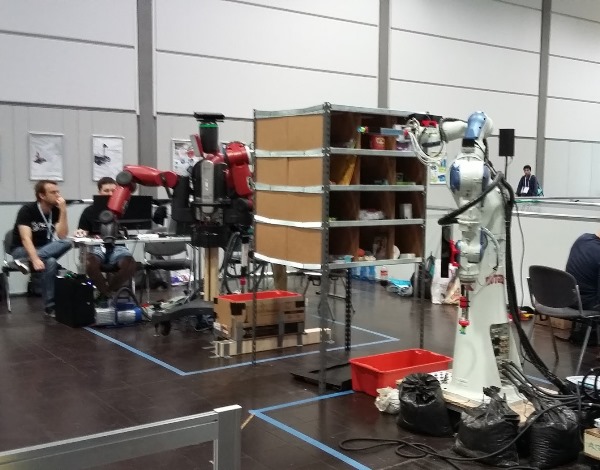Marcus Butler
25 July 2016: Menial and repetitive tasks are increasingly being passed to robot hands, and experts from the University of Canberra have demonstrated their prowess in programming to the world.
Professor of affective computing Roland Goecke and assistant professor of software engineering Damith Herath travelled to Leipzig, Germany this month for the 2016 Robocup, an international competition for robots and their creators.
Dr Goecke and Dr Herath, along with collaborators from the University of New South Wales and technology-company Robological PTY LTD took part in the Amazon Picking Challenge (APC) with their robot called 'microRecycler'.
Professor Goecke said the challenge was about having the robot recognise items and interact with them in specific ways.
"There are two parts to the competition, picking and stowing," Professor Goecke said. "During the picking section the robot takes specified items from a shelf and places them together in a container.
"Stowing is the opposite; taking items randomly from the container and putting them back where they belong on the shelves.
microRecycler was one of 16 robots to compete in the APC finals, alongside competitors from Massachusetts Institute of Technology (MIT), University of Bonn and the University of Tokyo.
Professor Goecke said people are often interested in why the robot is named microRecycler.
"It came from Damith's collaboration with the Centre for Sustainable Materials Research and Technology, developing robot technology to dismantle old smartphones to separate the parts for recycling," he said.
"Our aim is to have a robot learn how to take the devices apart, recognise the different materials to improve the quality and purity of the recycled material, Damith handles the robotics and I work on the computer visuals to detect the components."
Dr Herath said the microRecycler team was the smallest to compete in the APC.
"The winning team overall Delft Robotics had about 15 members and more than half of them worked on the project fulltime for up to six months," Dr Herath added. "It's serious business."
"Despite being the smallest team, we placed in the top ten for the first challenge, beating the only other Australian team which came from Queensland.
A few technical hitches and a last minute alteration in the second part of the competition- picking, upset the team's run and saw them knocked out of the finals.
"We had our robot's gripper crash into the shelf and the resulting emergency stop sealed it up for us," Dr Herath said.
"It was a great learning experience and we'll be putting out a technical report and making the code available under an open source licence for future use as well.
"I think Amazon are keen to increase the prominence of this competition in coming years and the University of Canberra team along with our collaborators, will be ready for another attempt at the APC next year," he said.




